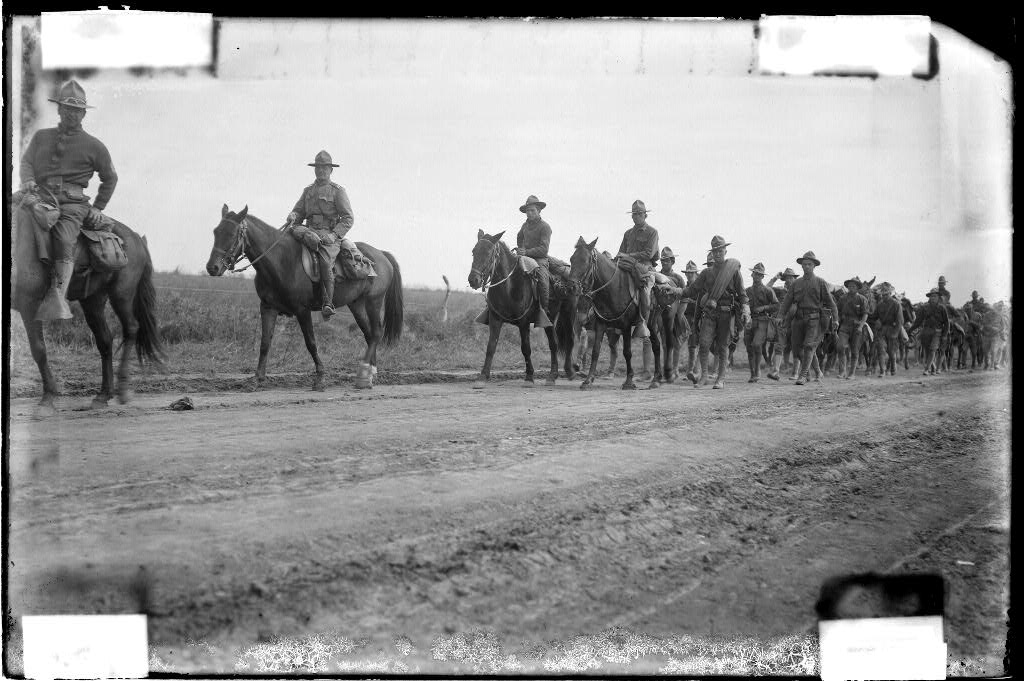By Trinidad Gonzales, John Morán González, Sonia Hernández, Benjamin Johnson, and Monica Muñoz Martínez
This is not the first time the use of the pardon was promised to law enforcement officials to shield them for legal liability for violating the due process owed to all.
President Donald Trump’s recent pardon of former Arizona sheriff Joe Arpaio is a return to a dangerous, racially-charged precedent. This pardon fosters an environment conducive to civil rights abuses by law enforcement officers, particularly against Latinos. How do we know? Because this is not the first time the use of the pardon was promised to law enforcement officials to shield them from legal liability for violating the due process owed to all.
In 1915, in the midst of an armed uprising by Mexican American ranchers in the lower Rio Grande Valley, Texas Governor Ferguson told Texas Ranger Captain Henry Ransom “to go down there and clean up that nest… and to clean it up if he had to kill every damned man connected with it.” According to sworn testimony, the governor promised to pardon any Ranger convicted of murder in this police action, stating, “I have the pardoning power and we will stand by those men.” Emboldened by this commitment, the Rangers and county sheriffs racially profiled all ethnic Mexicans as potential bandits and threats to national security. They summarily executed at least 300 Mexican Americans and Mexicans in a frenzy of state-sanctioned violence.
In 1919, José Tomás \”J.T.\” Canales, the lone Mexican American state representative, pushed for an investigation of these extralegal killings, which the Texas legislature reluctantly agreed to conduct under mounting international pressure. Just the previous year, the Rangers and the U.S. military had rounded up and killed 15 ethnic Mexican men in far west Texas town in a shocking incident now known as the Porvenir Massacre.
During the legislature\’s investigation, two important points emerged that hold relevance for understanding the troubling historical resonances of Trump’s pardon of the former sheriff of Maricopa County. First, government officials publically denigrating Mexican Americans and Mexicans as threats to U.S. society provides cover for racial bias and discriminatory acts by law enforcement. Second, if law enforcement officers perceive that they will be shielded despite violating people’s civil rights, then the likelihood that such violations will occur significantly rises.
With 20,000 Border Patrol agents currently in the field, and plans to add another 15,000, the detrimental effects of sanctioned racial profiling could be staggering. Between January 2012 and October 2015, the U.S. Customs and Border Protection received 2,178 cases of alleged misconduct by Border Patrol agents. These claims included instances of verbal abuse, theft of property, and physical assault. These cases could jump substantially if the professional requirements to become a Border Patrol agent, combined with a perceived immunity, are lessened to fill positions rapidly. Other law enforcement agencies would likewise not be immune from such a troubling rise.
Make no mistake: President Trump’s pardon of the convicted former sheriff essentially nationalizes a license to abuse civil rights. In granting this pardon, Trump not only ignores Arpaio\’s long record of such violations while an elected official but also condones the continued racial profiling of Latinos by his implicit endorsement and defense of Arpaio’s misdeeds. Indeed, Trump’s pardon has not only lent the stamp of governmental approval to the denial of due process, but has unleashed a divisive yet legitimated racial politics into the electoral process. The ink on Trump’s pardon scarcely dry, Arpaio announced that he would not rule out running for his state’s U.S. Senate seat in a trial-balloon launch of the idea.
With renewed urgency, scholars have been documenting the severity and extent of such past abuses of state power as well as its implications for the present. Such efforts include the Refusing to Forget project, whose mission is to raise public consciousness about the state-sanctioned violence against Mexican Americans and Mexicans a century ago. President Trump’s unconscionable pardon of Joe Arpaio demands that we remember this forgotten history, and hold him accountable for encouraging the further abuse of state power not only against communities of color but against the very concept of due process itself. For ultimately, all our civil rights are at risk when an executive of government exonerates extralegal violence against the very people he is supposed to serve.
Refusing to Forget (refusingtoforget.org) is an educational non-profit devoted to remembering the state sanctioned violence against Mexican Americans and Mexicans during the 1910s. Members include Trinidad Gonzales, John Morán González, Sonia Hernández, Benjamin Johnson, and Monica Muñoz Martínez.

